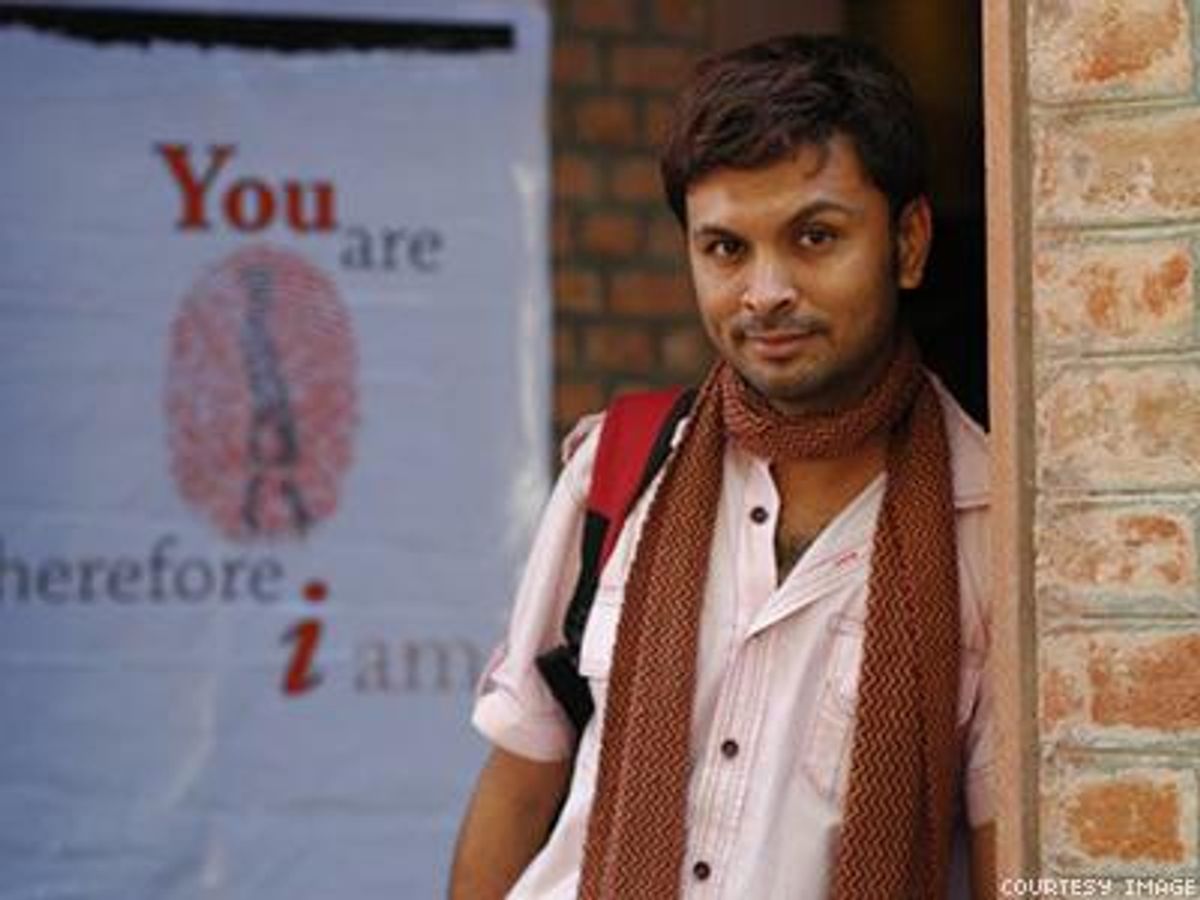The mother of one of India's best-known LGBT rights activists has created controversy on several fronts after posting a newspaper ad seeking a husband for her gay son -- in the tradition of Indian mothers who have been seeking suitable mates for their sons for generations, reports The Huffington Post India.
Now Harish Iyer is defending his mom in the media, insisting she's not a classist -- or caste-ist, to be culturally accurate.
Iyer's mother was rejected by numerous major publications when she tried to place a simple ad seeking a husband for her son. Several editors told her the publication's legal teams advised them such an ad was illegal, presumably under India's recently reinstated colonial-era ban on consensual sex between men.
The ad ultimately ran in Mumbai's Mid-Day newspaper Sunday, reading, "Seeking 25-40, well-placed, animal-loving, vegetarian groom for my son 36, 5 11' who works with an NGO caste no bar (though Iyer preferred)."
According to HuffPost India, Iyers are "an upper-caste community of Tamil Brahmins."
And therein lies the rub. Those last three words threaten to turn what might otherwise be a perfectly pivotal progressive breakthrough advertisement that juxtaposes, while also modernizing, one of India's ancient filial traditions with one beautiful act of equal love, into an awkward -- if not bigoted -- spotlight on the fissures still evident in Indian society.
"Those last three words wouldn't be out of place normally -- our newspapers are after all full of matrimonial adverts for educated people seeking alliances from people from the same caste and sub-caste, reminding us how pervasive and deep are the ancient fault lines in modern India," Rituparna Chatterjee of HuffPost India writes.
The man at the center of the ad controversy responded to HuffPost India's coverage and subsequent critcism on social media, defending his mother.
"My Mom would be happy if it was a Dalit Muslim yet vegetarian and animal loving guy," Iyer told HuffPost India. "But she would love it if he happens to come from a familiar territory that she knows about. So, not really caste discrimination. It's like you (author) saying that I would love people from any caste as an alliance, but I would love to enjoy machher jhol (fish curry, a Bengali staple) with him if he was Bengali."
India has been a complicated story regarding LGBT rights. The country is occasionally groundbreaking in its approach to transgender people as well as LGBs -- then goes backward. That was the case when the country's Supreme Court in late 2013 reversed a lower court's ruling that had overturned India's sodomy law. Just months after reinstating the colonial-era ban on sex "against the order of nature," the same court issued a landmark ruling formally establishing a legal third gender and enshrining equal access and nondiscrimination protections for transgender people in employment, housing, and education.


















































































Viral post saying Republicans 'have two daddies now' has MAGA hot and bothered